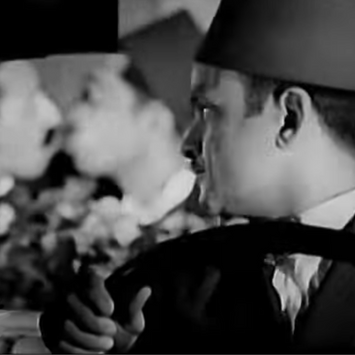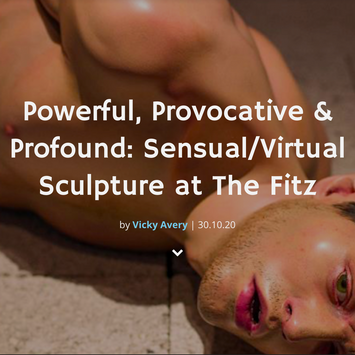The Abou Nuwas Film Festival will be the first in a series on the topic on the visibility and ‘normality’ of LGBTQI+- and/or queer themes and characters in the cinema, literature and visual arts of the ‘Islamicate’ world. The first event will be focusing on the widely popular cinema of Egypt as the cradle of mainstream Arabic cinema, other Arabic countries, from Morocco to Iraq, as well as Iran before AND after the Revolution (yes!), Turkey, the Indian/Pakistani Subcontinent and Indonesia.
Hollywood as well as Europe often had quite homophobic cinema (Silence of the Lambs, Midnight Express, Deliverance, Lawrence of Arabia, Z, Souffle au Coeur, Basic Instinct in a certain way as well, while Edward Dmytryk in 1947 had to change the plot about the hate-killing of a homosexual man in his movie Crossfire to the hate-killing of a Jewish man - and even then was later arrested by the committee researching Un-American activities - and as late as 1970 the great Billy Wilder was prohibited from picturing Sherlock Holmes as a homosexual). In fact two groundbreaking UK movies, My Beautiful Laundrette and Bend it like Beckham, treated these themes in quite a light manner, and both had a strong resp. Pakistani (Hanif Kureishi as scriptwriter) and Bollywood (director and producers) connection. Compare these to the heavy-handedness of the few other European and Hollywood movies that dealt with these themes Maurice, Philadelphia, Brokeback Mountain and A Single Man, and more recently Call me by your Name, God's Own Country, Portrait de la jeune fille en feu, Ammonite or Supernova.
Yet in recent decades parts of the aforementioned regions have undergone a setback, and this setback has also influenced the West. But as a whole the 'Islamicate' world can't be considered homophobic per se, and certainly not as homophobic as some reactionary influencers but also not properly informed 'liberals' in the West seem to want us to think.
Here is an article among many that describes how little apparently these topics were in earlier Islam
https://www.gaystarnews.com/article/secret-gay-history-islam/?fbclid=IwAR2Sg-bQn-owCWsxJtbMyf3DF50D98UyAsVpead3V_GHyDIs53wmcBcTAws
But yes, colonial and post-colonial influences destroyed a lot, as well as Wahhabism, while the way how Wahabism was promoted was very much modeled after Western promotion models.
Here are some examples of recent culture in Pakistan. Note that the fact that the two singers are transpersons does not play any role.
https://www.youtube.com/watch?v=LOojBeYVhDQ
The making of https://www.youtube.com/watch?v=GU-holu9uWA&ab_channel=CokeStudio
Where in the Netherlands, the UK, France etc. do we find such a casual and at the same time respectful mutual approach? In a popular mainstream TV program?
The köçek (plural köçekler in Turkish) was typically a very handsome young male rakkas, or dancer, who usually cross-dressed in feminine attire, and was employed as an entertainer.
Famous poets, such as Fazyl bin Tahir Enderuni, wrote poems, and classical composers, such as the court musician Hammamizade İsmail Dede Efendi (1778–1846), composed köçekçes for celebrated köçeks. Many Istanbul meyhanes (nighttime taverns serving meze, rakı or wine) hired köçeks. Before starting their performance, the köçek danced among the spectators, to make them more excited. In the audience, competition for their attention often caused commotions and altercations.
As of 1805, there were approximately 600 köçek dancers working in the taverns of the Turkish capital. They were outlawed in 1837 due to fighting among audience members over the dancers. With the suppression of harem culture under Sultan Abdulaziz (1861–1876) and Sultan Abdul Hamid II (1876–1908), köçek dance and music lost the support of its imperial patrons and gradually disappeared.
Köçeks were much more sought after than the çengi ("belly dancers"), their female counterparts. Some youths were known to have been killed by the çengi, who were extremely jealous of men's attention toward the boys.
A modern interpretation is the popular movie Köçek (1975) by director Nejat Saydam. The movie follows the life of Caniko, an androgynous Gypsy, who struggles with his gender identity.
The film, in fact a music comedy, ends happily when the protagonist undergoes a sex operation.
There is a wide array of literature on the history of ‘LGBTQI-friendly’ mainstream cinema in Egypt. A groundbreaking survey was given by Garay Menicucci in Unlocking the Arab Celluloid Closet - Homosexuality in Egyptian Film, published in 1998, https://www.jstor.org/stable/3012479
For some reason the author omitted the pioneer Togo Mizrahi, and as movies Marwan Hamed's The Yacoubian Building 2006 and Nadine Labaki's Caramel 2007, both box office hits, were produced after the article appeared.
There is a huge number of fascinating popular movies on this topic, which are rarely if ever shown outside the regions of origin. Some films that elderly Europeans with a migrant background will remember, some others that younger generations are familiar with, and some recent movies that however not always got the exposure and attention they deserve. They will be eye-openers for a wide variety of audiences.
Given the number it can be a long term project, while in further editions literature and visual arts from the region will also be topics of huge interest.
The festival will aim at these elderly among the communities with a migrant background, the younger among these communities including - a.o. via schoolprograms - the youth from fifteen years on, a wide audience that is interested in culture from these regions, a wide audience that perhaps is not familiar with and even prejudiced concerning the history of the region regarding these topics, film lovers who for the first time will be able to see gems from cinematography in a proper setting and mixed LHBTQI+-communities, among them LHBTQI+-communities with a migration background, who tend to get marginalised in our society.
The first edition is set for May 2021 in Amsterdam, Rotterdam, Assen and Groningen.
A comment on the Turkish movie Zenne Dancer from 2011 directed by Caner Alper and Mehmet Binay is telling about the history of these topics in the region.
https://www.imdb.com/title/tt1934487/?ref_=nv_sr_srsg_0
*) "What a gem of a movie. It touches you on so many points. Obviously, a majority of the film is about the internal storms of gays living in a society as intolerant as Turkey has become. The hypocrisy is, however, how open the Turkish Society was to gay inclinations and even encouraged them until one hundred years ago. Zenne (or Kocek) is a very old Turkish word and they were male dancers accompanying the acrobats during celebrations. But the movie does not go into those details anyway. Actually, I don't even classify Zenne as a gay movie. It's a very human movie." NB This movie was shown in cinemas in Turkey.










































